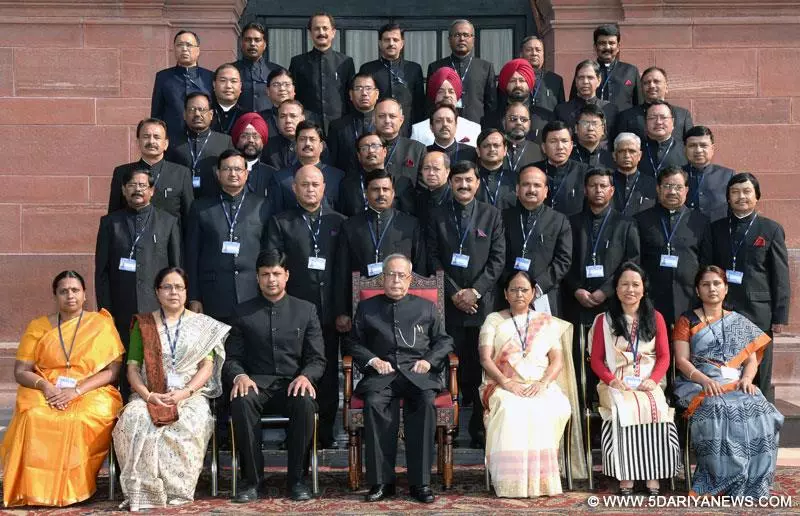Evolving dynamics
As karmyogis, the civil servants have been relentlessly synthesising the inputs provided by various sectors to put everything in a wider perspective. In doing so, while they still embark on their commendable ‘skills’, the priority has shifted from ‘knowledge’ to ‘attitude’

This is the third extract from the speech delivered by Sanjeev Chopra on the Civil Services Day at Itanagar, Arunachal Pradesh. The first two extracts, ‘Homage to the pioneers’ and ‘Bridging the gulf’, were published on April 23 and 30, respectively.
Key insights
What then are the key insights that I can share with you based on a score and 16 years of service? It is important to understand who we are, the context in which we operate, who we are not, the role of lateral entrants, and the new expectations which the political leadership has placed upon us as a Service.
The context
We have to acknowledge that we have made a major transition from an agrarian economy to a post-industrial political economy in which the services sector is of paramount importance. At the time of Independence, we were largely an agrarian economy. For example, in 1951, over 60 per cent of our national income came from agriculture, and over 80 per cent of the population was engaged in this sector. Now, the share of agriculture has shrunk to less than 13 per cent, and less than half the population depends upon it as the primary source of livelihood. Even those who depend on agriculture, receive substantial income from high-value agriculture (horticulture, dairy, poultry) and sources other than agriculture (seasonal migration and services sector). Thus, in the post-industrial world, in which India has already become one of the fastest-growing economies, we will need to induct specialists in different sectors of governance. The specialists, whether they be engineers, architects, librarians, IT specialists, or agronomists, will be required to provide technical support and leadership in their respective sectors. While they will provide inputs on their respective domains, it is the civil service that will provide the overall context, whether it is of border roads, holistic health and healing, the utilisation of millets in the mid-day meal scheme, or the NEP, and the interrelatedness of all these interventions.
What we are not?
It is also important to understand what the civil service is not.
We are not narrow specialists who look only into a specific domain, which, in itself, is very important but needs to be understood in the context of the vast jigsaw of governance.
We are not revolutionaries who seek to overturn the established system. We have faith in our political system, as by law established. In fact, we are responsible for the conduct of free and fair elections.
We are not political leaders as long as we are in service, although many of our colleagues now join the political process and make it to the highest positions in the Union and state cabinets. From External Affairs to Railways, Power, and Petroleum, our members adorn the political space. But this is not our core competence.
We are not monks or missionaries either. We are not seeking to provide spiritual salvation to the people. Of course, we would like to create ideal conditions so that having fulfilled their material, social, and cultural wants, people can seek self-actualisation in the Maslovian sense of the term.
We are Karmayogis who seek our salvation in service to the people and the nation. In fact, the Mission Karamyogi launched by the Prime Minister on August 20, 2020, when I was still the Director of the Academy, called for the following specific actions: breaking the silos, developing professional competencies, active listening and engagement, ushering in technology, and doing all that we can to make India a 40-trillion-dollar economy by 2047.
The transformed paradigm of training: KSA to ASK
I am often asked, what is the difference between training today and the one that was four decades ago? Well, the key components remain the same, but their ordering has changed, and this has made a world of difference. As I mentioned earlier, the alphabets and words could remain the same, but the ordering makes all the difference. The key words continue to be knowledge, skills, and attitude. But the KSA approach is now reversed to ASK. In our times, the training methodology laid a lot of emphasis on knowledge. We were subjected to knowledge-intensive lectures on different aspects of the Constitution, public administration, policy, economics, political economy, and management. Over the years, all these have been included in the syllabi of the UPSC. We were also taught various skills — from drafting office memorandums to writing judgments, conducting public inquiries, survey techniques, and much more. We were also told to have a positive attitude towards our key stakeholders — the public we are meant to serve.
Today, the cycle is reversed. We focus primarily on attitude because if you have a positive attitude and outlook towards the governance ecosystem, everything else will fall into place. Skill sets are important, but technology will come to our aid — from simple spell checks to AI-assisted deep research, making it much easier for us. But there are skills of listening and communicating that are extremely relevant, and these skills will have no meaning unless we have an attitude. As far as knowledge is concerned, Google Baba gives you all the information at your fingertips. In fact, the challenge now is to sift the relevant from the irrelevant.
The writer superannuated as the Director of the LBSNAA after 36 years in the IAS, and is currently a historian and policy analyst.



